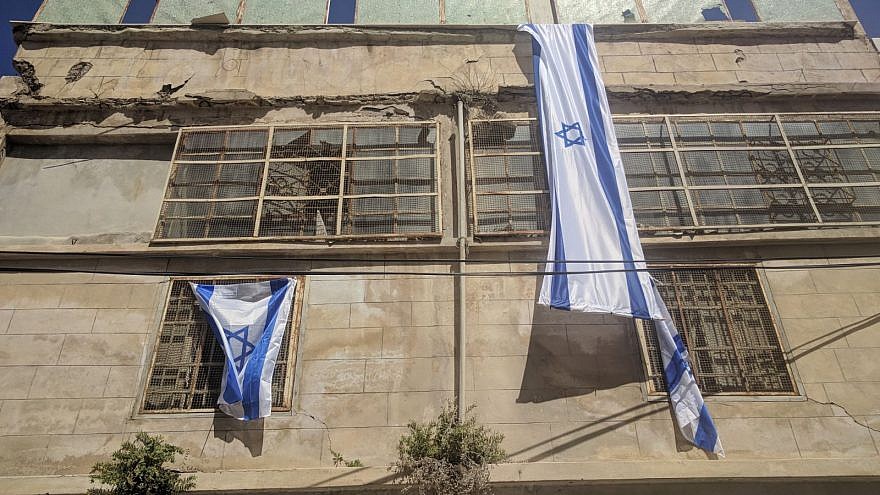A group of 15 Jewish families in Hebron took up residence in two buildings situated near the Tomb of the Patriarchs and Matriarchs (Ma’arat HaMachpela) on Monday night, which they have named Beit Rachel (the House of Rachel) and Beit Leah (the House of Leah).
The names were bestowed in honor of the biblical sisters Rachel and Leah, who together with their husband, Jacob, were the forebears of the 12 tribes of Israel.
The entry of the families prior to Passover occurred just days after families left a three-story building called Beit HaMachpela. The families claimed that they purchased the building from the Palestinian Abu Rajab family in 2012; however, that family took them to Israel’s Supreme Court, which said the Jewish community could not take possession until the Civil Administration agrees to register it in the community’s name.
Shlomo Levinger, Hebron resident and a spokesman for the Harhivi organization that activated the move, said Beit Rachel and Beit Leah were purchased five years ago, and that his organization received authorization from defense and government officials to inhabit the buildings.
“In the face of all the challenges and those who are trying to derail our continued expansion in the city of our forefathers, we declare that on this day, all of Israel is taking a historic step in redeeming the land,” Harhivi said in a press release.
Levinger noted that his father, settlement leader and spiritual figure Rabbi Moshe Levinger, led his own effort to restore Jewish life to Hebron in the aftermath of the 1976 Six-Day War, exactly 50 years ago.
The Peace Now anti-settlement organization called the entry into the new residences “unparalleled chutzpah” and demanded that security forces not wait for the Supreme Court to hand down a ruling before kicking the Jews out.
International Spokesman for the Jewish Community of Hebron Yishai Fleisher noted the strategic and political significance of the move.
“With the addition of Beit Rachel and Beit Leah, there will be continuity from the Machpela to the Avraham Avinu neighborhood. It will enable more Jewish families to live in this ancient Jewish city,” he said. “Furthermore, the government’s approval of this purchase sends a signal to all those who would ethnically cleanse us from this city, that the Jewish people—and Israel—are here to stay.”


























